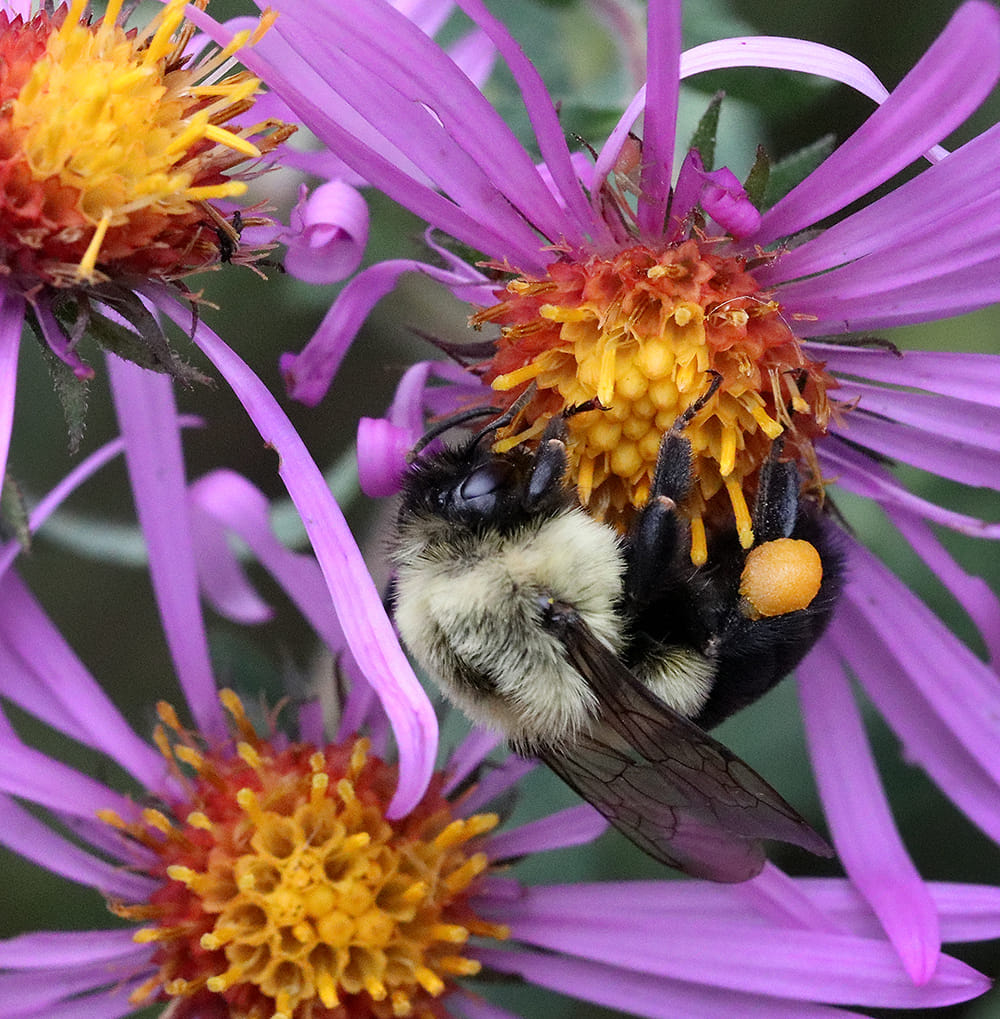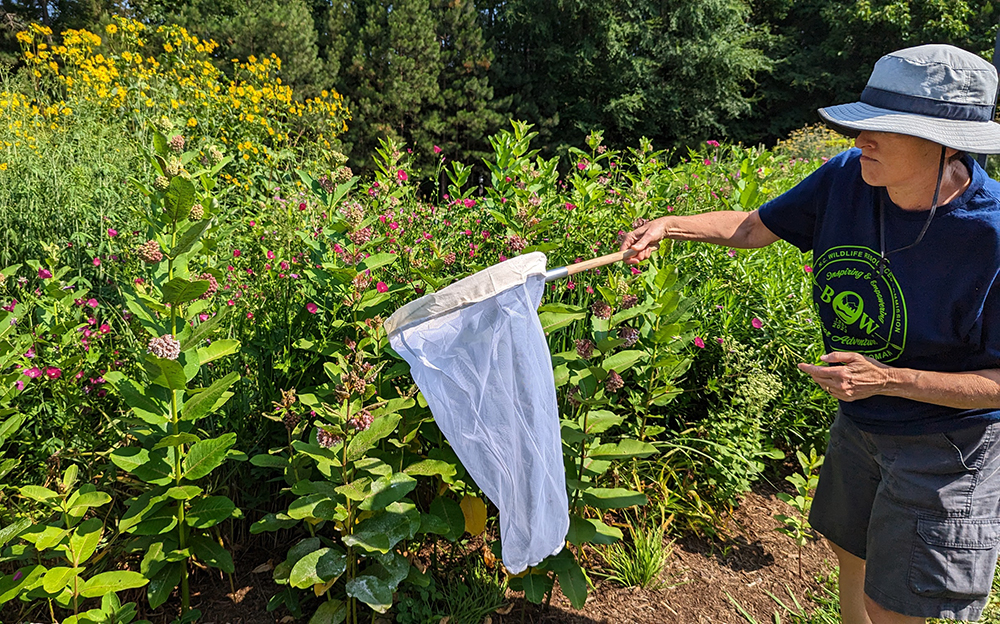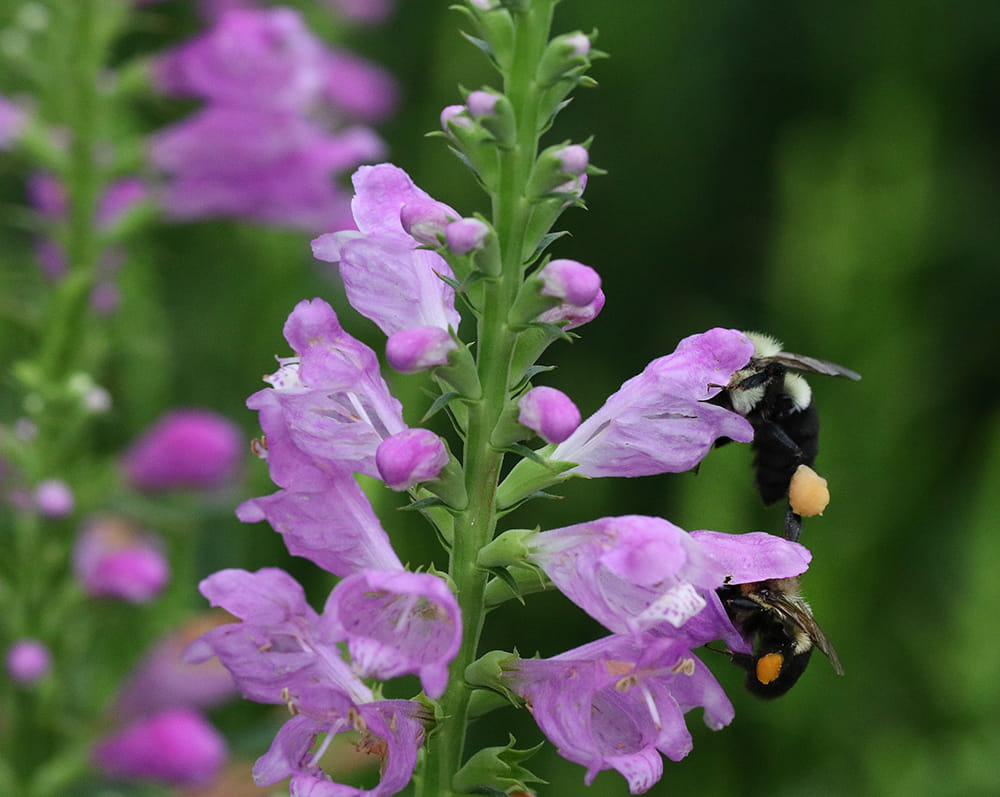Register Now for April CCP Virtual Meeting About Bumble Bee Conservation
go.ncsu.edu/readext?996341
en Español / em Português
El inglés es el idioma de control de esta página. En la medida en que haya algún conflicto entre la traducción al inglés y la traducción, el inglés prevalece.
Al hacer clic en el enlace de traducción se activa un servicio de traducción gratuito para convertir la página al español. Al igual que con cualquier traducción por Internet, la conversión no es sensible al contexto y puede que no traduzca el texto en su significado original. NC State Extension no garantiza la exactitud del texto traducido. Por favor, tenga en cuenta que algunas aplicaciones y/o servicios pueden no funcionar como se espera cuando se traducen.
Português
Inglês é o idioma de controle desta página. Na medida que haja algum conflito entre o texto original em Inglês e a tradução, o Inglês prevalece.
Ao clicar no link de tradução, um serviço gratuito de tradução será ativado para converter a página para o Português. Como em qualquer tradução pela internet, a conversão não é sensivel ao contexto e pode não ocorrer a tradução para o significado orginal. O serviço de Extensão da Carolina do Norte (NC State Extension) não garante a exatidão do texto traduzido. Por favor, observe que algumas funções ou serviços podem não funcionar como esperado após a tradução.
English
English is the controlling language of this page. To the extent there is any conflict between the English text and the translation, English controls.
Clicking on the translation link activates a free translation service to convert the page to Spanish. As with any Internet translation, the conversion is not context-sensitive and may not translate the text to its original meaning. NC State Extension does not guarantee the accuracy of the translated text. Please note that some applications and/or services may not function as expected when translated.
Collapse ▲
Bumble bee foraging on aster. Photo by Debbie Roos.
The April 2024 Chatham Conservation Partnership (CCP) meeting will focus on Bumble Bee Conservation. The webinar will be on Thursday, April 18 from 9:00-11:30 a.m.
AGENDA:
North Carolina Bumble Bees: Biology, Diversity, and Threats
Hannah Levenson, NC State University
Bees are one of the most diverse groups of insects with ~564 species in North Carolina. These species have a diversity of characteristics and play unique roles in the greater ecosystem. Hannah will discuss NC bumble bee species, what role they play in the bee community, and some of the key threats to bumble bee populations.
Provide Plants & Habitat for Bumble Bees
Debbie Roos, N.C. Cooperative Extension
What do bumble bees need to thrive? Debbie will discuss the best plants that provide blooms from early spring through late fall for the bumbles. She will also discuss other habitat features and things we can do and not do in our landscape that provide critical nesting and overwintering resources for bumble bees.
The Southeast Bumble Bee Atlas
Laurie Hamon, The Xerces Society
Bumble bees are familiar and charismatic visitors to our gardens, but much remains unknown about their distribution and conservation needs. To fill this gap, the Southeast Bumble Bee Atlas is a community science project created to monitor the bumble bees of North Carolina, South Carolina, Georgia, and Tennessee. In this section, Laurie will cover the background of the Southeast Bumble Bee Atlas, and how you can participate.
Register for this virtual CCP meeting.
Registration deadline is 5 p.m. on April 17. Registrants will receive an email prior to the event with the Zoom link.
CCP Steering Committee: Brooke Massa, Brandy Oldham, Debbie Roos, Margaret Sands, Allison Weakley.
For more information about the Chatham Conservation Partnership, visit the CCP website or email info@chathamconservation.org.
Speaker Bios:
Laurie Hamon is an Endangered Species Conservation Biologist with the Xerces Society for Invertebrate Conservation, and lead coordinator for the Southeast Bumble Bee Atlas. Laurie earned a PhD at North Carolina State University studying the pollination ecology of Venus flytraps. Laurie’s research interests focus on plant-pollinator interactions through a conservation lens.
Hannah Levenson is a community ecologist broadly interested in investigating how humans impact the environment and exploring ways to mitigate those impacts. The main tools she uses to explore this are beneficial organisms, particularly pollinators, in agricultural settings. Hannah is a bee expert with experience researching both native bees and honey bees in US and international settings. Currently, in her postdoctoral work she is head of the Specialty Crops IPPM Lab and co-PI on a multi-state USDA funded grant focused on making the management of an invasive fruit fly more sustainable in berry crops in collaboration with 10 different universities and several USDA offices across the US. For more information about her work visit her website.
Debbie Roos is a Sustainable Agriculture Agent for the Chatham County Center of North Carolina Cooperative Extension. Debbie began her Extension career as an Agroforestry Extension Agent and Technical Trainer for the Peace Corps in Senegal, West Africa. She later completed graduate degrees in applied anthropology and horticulture at the University of Florida. In 2008 Debbie created a demonstration Pollinator Paradise Garden that she uses to teach others about the importance of bees and other wildlife to our ecosystem.

Netting bumble bees on common milkweed for the Southeast Bumble Bee Atlas. Photo by Debbie Roos.

Double decker bumble bees foraging on obedient plant. Photo by Debbie Roos.


